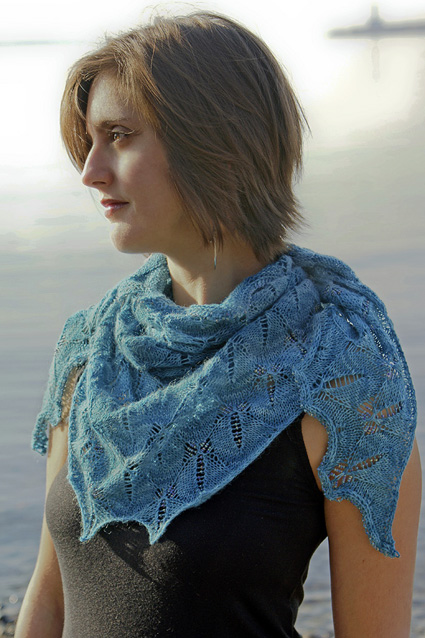
|
|
|
|||
I love summer, I love beads, and I love figuring out how to make beads float on yarn-overs, that’s a lot of LOVE! I combined all my loves and came up with this little summer inspired wrap. It’s got a lace pattern that is easy to get the groove of, and motifs of dragonflies, one of my favorite things to watch when I spend steamy summer days at the lake with some giggling kids and my knitting. Some people have seen moths when looking at the pattern, some dragonflies, one unnamed source even said he saw a carrot, but we hushed him quickly! This wrap will keep the chill off in restaurants or down by a lake listening to the summer night.
|
|||
| SIZE | |||
Small[Large] [both shawls shown in size S] |
|||
| FINISHED MEASUREMENTS | |||
Width: 53[61] inches |
|||
| MATERIALS | |||
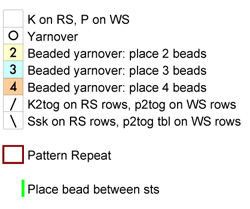 Recommended needle size:
|
|||
| GAUGE | |||
23 sts/30 rows = 4 inches in stockinette st, after blocking |
|||
|
PATTERN NOTES [Knitty's list of standard abbreviations and techniques can be found here.] |
|||
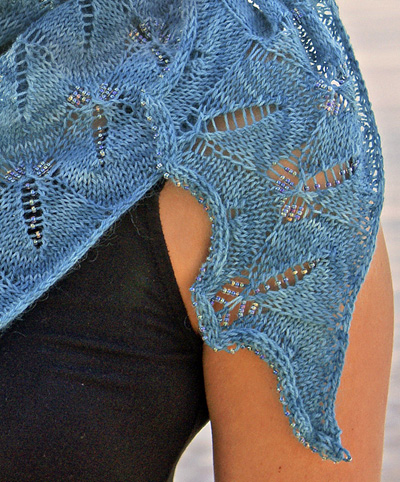 Chart: The chart for this pattern fits on 2 letter-sized pages. Click here and here and print both pages. The chart key is above. Tip for stringing beads: You don’t have to painstakingly count each bead as you thread them onto the yarn. Thread on 20 beads, make sure they are placed tightly together, then measure to see how much length they cover. Determine how many beads are needed to cover an inch of yarn (measure in several places to get an accurate average measurement). Determine how many inches
of beads are needed to
achieve the number of beads required; it's easier to measure
the length of yarn covered in beads, than to count out hundreds
of beads! 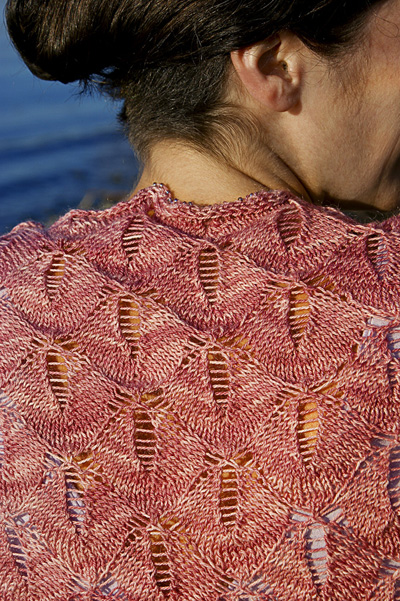 Place Bead: Slide bead up yarn so that it sits directly next to the right needle, then work the following st as directed. The bead will remain positioned between the stitches. When working yarnovers with multiple beads, the desired effect is for the beads to float on the yarnovers on each side of the bug motifs. This is easy to do, and you will soon get the hang of it. Working a beaded yarnover: Slide beads up yarn so that they sit directly next to the right needle. Work the yarn over, then work the following st as directed. The beads will remain in place on the yarnover. Working into the beaded yarnover on the subsequent rows: Instructions for the Backward Loop
Cast On can be found
here. Blocking: Information about blocking lace can be found here and here. |
|||
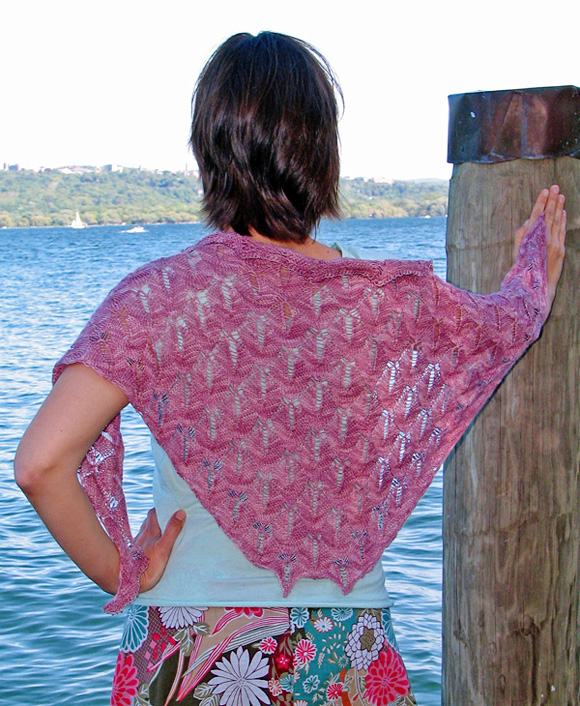
|
|||
| DIRECTIONS | |||
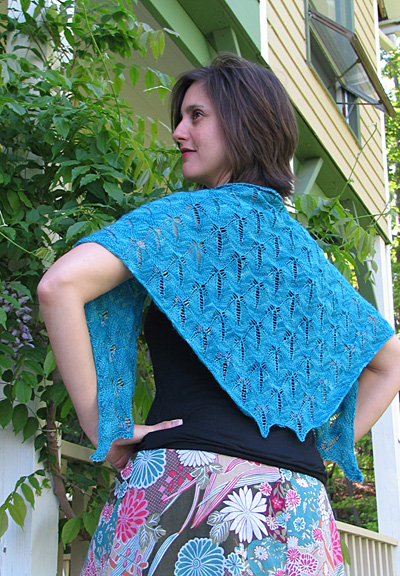 Thread 1205[1371] beads onto yarn. CO 43 sts using Backward
Loop method. If there is
another cast on method
you prefer for lace projects,
feel free to use your preferred
method. It is important
that the cast on edge is
stretchy, and loose enough
to stretch when the shawl
is blocked. Upper Edge: |
|||
| FINISHING | |||
Weave in ends and block, pinning out points at upper end lower edges. |
|||
| ABOUT THE DESIGNER | |||
 When she isn't designing and knitting, she is gardening, whipping up yummy feasts with her family, and taking time to play! |
|||
| Pattern & images © 2009 Laura Nelkin. Contact Laura |

